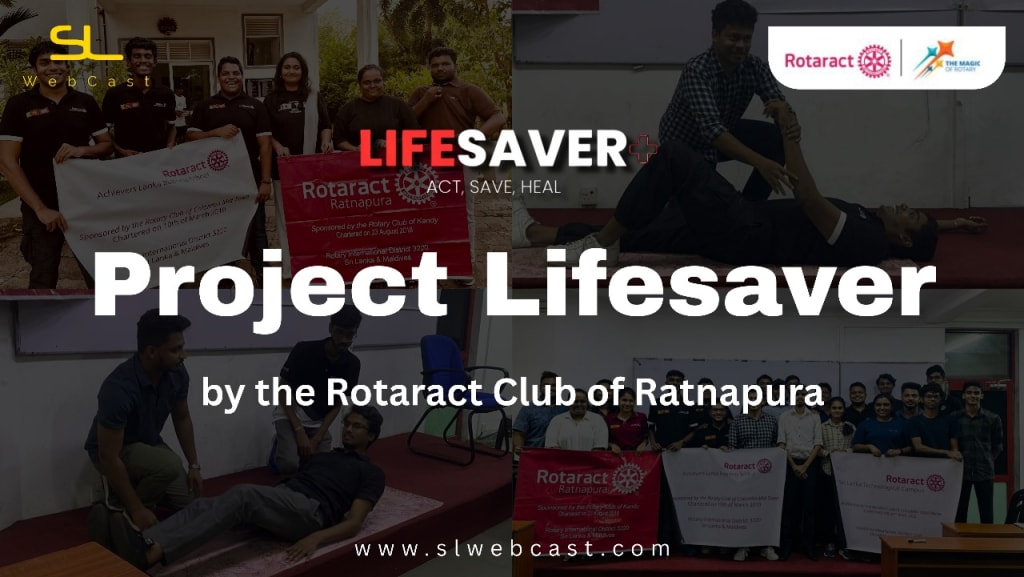“To save a life doesn’t always take a miracle—sometimes it just takes knowledge and a willing heart.”
In a world where emergencies strike without warning, being prepared can be the difference between panic and purpose. With this belief at its heart, Project LifeSaver was born—not merely as an initiative, but as a movement rooted in compassion, education, and community resilience.
Initiated by the Rotaract Club of Ratnapura in collaboration with the Rotaract Clubs of Achievers Lanka Business School and Sri Lanka Technological Campus (SLTC), Project LifeSaver set out to bridge the growing gap in first aid awareness and accessibility—especially among Sri Lanka’s youth and elderly. This two-phase project brought together service and education in a way that was as meaningful as it was impactful.
Phase 1: Empowering Youth Through First Aid
Held on 9th December 2024 at Achievers Lanka Business School, this training session transformed a group of young individuals into confident, informed first responders. A certified First Aid Training Officer from the CCS Saukyadana Unit conducted the session, which provided hands-on exposure to critical emergency procedures such as CPR, wound care, and managing unconscious patients.
Through engaging simulations and real-life scenarios, the session not only equipped participants with life-saving techniques but also instilled a sense of duty and purpose. Each participant was awarded a certificate, acknowledging their commitment to becoming guardians of safety within their communities.
Phase 2: Compassion in Action – Donations to an Elders’ Home
On 31st March 2025, the focus shifted to an elders’ home in Kalubowila, where the lack of basic medical supplies posed daily challenges to the residents. After conducting a thorough needs assessment, members from all three Rotaract clubs came together to donate well-equipped first aid kits and essential medications.
This phase was more than just a donation—it was a heartfelt gesture of care and respect. In recognizing the often-overlooked needs of the elderly, the project underscored the necessity of healthcare access for all, especially for those who may no longer have a voice in advocating for themselves.
Project LifeSaver proved that meaningful change begins with empathy and action. By educating the youth and caring for the elderly, it wove together two ends of the age spectrum into one powerful narrative of community safety. The project reminded us all that with the right knowledge and collective effort, anyone can be a lifesaver.
In a time when the world needs more compassion and preparedness, Project LifeSaver stands as a testament to what’s possible when service meets purpose.


